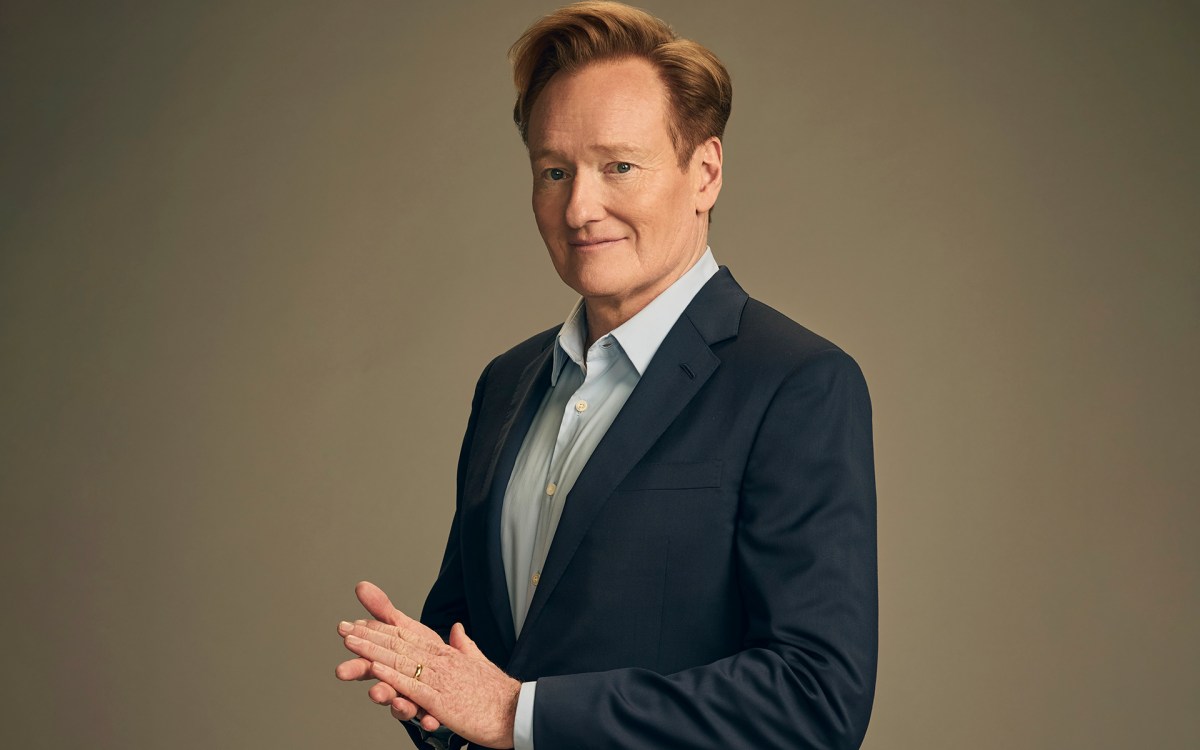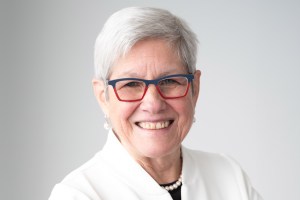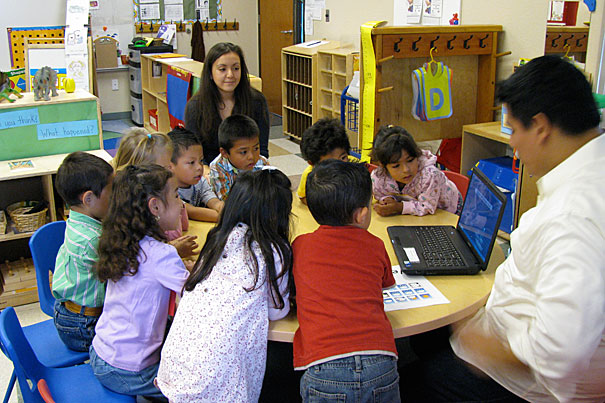
Now applying to law schools, Patty Rincon ’08 said, “HFAI has enabled me to do what I want with my Harvard degree, instead of what I had to do to pay off a huge debt.”
Photo courtesy of Patty Rincon
No ceilings
First alumni helped by Harvard’s aid program pass along good fortune
Two years after graduating from Harvard University, Patty Rincon already has worked as an advocate for prisoners’ rights and completed a service stint with AmeriCorps.
Harvard’s ethos helped to guide her toward public service, she said. But what made that goal possible for the young woman, whose parents lost their jobs as she was applying to colleges, was the financial aid she received from the University as an undergraduate.
Now she’s applying to law school, setting her sights on a career in civil rights or criminal justice. “If I was in a lot of debt because of college, I don’t know if I’d be in a position to go to law school and pursue that kind of job,” she said.
In 2004, Harvard announced an initiative to make the University more accessible to low-income families by expanding recruitment and eliminating expected parental contributions for eligible students. Since then, more than 1,900 students have taken advantage of the Harvard Financial Aid Initiative (HFAI), earning a Harvard degree at little or no cost.
Today, the widespread impact of HFAI is becoming clear. Upon graduating, HFAI alumni say they are empowered to pursue career paths as they wish, not as they must. Influenced by Harvard’s emphasis on public service and free of debt burdens, many of the program’s first alumni are passing along their good fortune.
“I may not be a legacy, or part of a finals club,” said Peter Conti-Brown ’05, who benefited from HFAI and was the first student director of the program. “But Harvard is part of my legacy, and I love that.”
As the world flattens, attracting a wide variety of students is a key priority, said Sally Donahue, director of financial aid for the College. Part of the goal is to increase cross-cultural understanding and broaden outlooks at Harvard.
“I think students have experienced enriched discussions in class, with a wider variety of perspectives,” she said. “University life in general is much more robust. There is more economic diversity represented in student groups on campus.”
But HFAI’s mission has not been to simply increase diversity. “It has enabled outstanding students who otherwise wouldn’t have been able to attend Harvard to find a place at the College,” said Dean Evelynn M. Hammonds.
For students who benefit from the program, admission to Harvard is just a beginning. Like their peers, on arrival they embark on a journey of learning that takes them around the globe, into fields they hadn’t known and career paths they hadn’t dreamed about. In addition to tuition aid, many HFAI students benefit from the winter coat fund, interest-free loans to buy a computer, and free tickets to campus happenings through the student events fund, as part of the University’s efforts to be more inclusive.
“It makes Harvard a much more meritocratic system,” said Jeffrey Kwong ’09, an HFAI recipient.
“It puts you on a level playing field with your peers,” said Rachel Culley ’07, who also benefited from HFAI.
Here are some recent graduates’ stories:
Muriel Payan ’08
Concentration: Government
Growing up in California, Payan dreamed of college, but knew she’d need a scholarship in order to attend. She applied to nearly 20 colleges, and even when Harvard offered her a full scholarship through HFAI, she hesitated to move across the country. Her mother, an immigrant from Nicaragua, wanted her to stay close to home.
“It wasn’t until she started telling her co-workers that I got into Harvard and saw their reactions that she realized this was a big deal,” she said.
At Harvard, Payan discovered what it means to be a global citizen, interning at the Pentagon, studying in Paris, spending a summer working for a human rights organization in India, and using spring breaks on service trips to Malaysia, New Orleans, and Dubai.
After graduation, Payan took a one-year fellowship at the American University in Cairo, working in the Office of Institutional Planning, Assessment, Research, and Testing. She then took a similar position at the new King Abdullah University of Science and Technology in Saudi Arabia. She plans to earn a master’s degree in business or public policy and would like to spend her career working with developing countries.
“I do miss home,” she said. “But I feel like there’s still so much to see and do in the world.”
Rachel Culley ’07
Concentration: Women, Gender, and Sexuality
Raised by parents who were part of the back-to-the-land movement, Culley grew up in a home with no electricity or indoor plumbing, and was homeschooled until seventh grade.
Culley first set her sights on Harvard as a child, when she and her father drove to Cambridge from their home in Maine to deliver a load of firewood. While in the area, they took a tour of the campus, and Culley knew that’s where she wanted be.
“It was an amazing place,” she said. “There were so many buildings and opportunities. It seemed wonderful.”
The day she learned she had been admitted was “the best day ever,” she said. “When I got to campus, I was interested in learning as much as I could.”
She wrote a thesis on class issues, got involved with the group Strong Women Strong Girls, wrote for Diversity and Distinction magazine, and worked with students from areas of conflict through Seeds of Peace. On graduation, she brought flowers to the financial aid office.
“They enabled me to do everything that I wanted,” she said.
Now a third-year law student at the University of Michigan, Culley plans to pursue public interest and civil rights work, a choice she said HFAI made possible.
“Without it, I wouldn’t have had as much freedom to choose a public interest career,” she said. “I don’t have college debt and I have a Harvard education. That’s incredibly powerful.”
Neeraj “Richie” Banerji ’06
Concentration: Economics
When Banerji mailed his Harvard application from balmy Calcutta in the winter of 2001, he thought his academic dreams were treading between fantasy and wishful thinking — the price of going to Harvard was many times his family’s annual income. Even if he got in, his father warned that the family might not be able to send him.
His acceptance, and the subsequent news of the HFAI program, “changed the track of my life,” Banerji said.
In high school, Banerji had been slated to attend a local university and to become an engineer. At Harvard, he discovered economics, earning fellowships from the Center for International Development, the Asia Center, and the South Asia Initiative. He was also a vocal executive of the Harvard Undergraduate Council.
“It amazes me to think who I might have been had I not had the opportunity to come to the United States,” he said.
Upon graduation, Banerji joined Fidelity Investments, where he now works as a director of strategy. Recognizing that his dreams would not have come true had it not been for his benefactors, Banerji said he gives as much as possible toward financial aid and the Harvard College Fund each year, and lives by a mantra he first saw emblazoned over Dexter Gate: “Depart to serve better thy country and thy kind.”
Bryce Caswell ’07
Concentration: Government
Caswell’s family moved frequently when she was growing up, and life at home was generally chaotic. By age 12, she was holding down several jobs in addition to going to school. Though she hoped to make it to college, Caswell said, “I was in a situation where squeaking out tuition for community college would have been difficult.”
News that she’d been admitted to Harvard and had a full scholarship “was like a fairy tale for me,” she said.
At Harvard, Caswell found a sense of home and stability she’d never had. HFAI and other grants meant that money was never an issue. Instead of worrying about paying hefty tuition bills, Caswell focused on her studies, traveled abroad, and worked as a student coordinator for the HFAI program.
“All of the sudden, I had a meal plan and health insurance,” she said. “It was so generous.”
After finishing her degree, Caswell took a job doing international real estate development for clothing retailer Abercrombie & Fitch. But Caswell said her years at Harvard “shaped me to feel like I had an obligation to give back.” She left the corporate world last year and joined School Pathways, a software company that produces computer programs to assist classroom learning.
Jeffrey Kwong ’09
Concentration: Government and East Asian Studies
Families dream about having one child get into Harvard. Kwong’s parents have sent two: His younger brother Jacky is now a senior studying economics and government.
“My parents couldn’t imagine in their wildest dreams that this was possible,” he said. “HFAI has opened doors for my family that were unimaginable.”
The son of Chinese immigrants who escaped the Cultural Revolution, Kwong grew up in San Francisco’s Chinatown in a four-bedroom apartment shared with three other families. By high school, he was making headlines for his volunteer work as a translator at city hall.
Coming to Harvard was like stepping into another world, he said. Inspired to give back, Kwong worked as a recruiter for the HFAI program during his undergraduate years, traveling to high schools near his hometown to encourage kids like him to set their goals high.
“Without others helping me, my story would not be possible,” he said.
While at Harvard, Kwong also participated in the Undergraduate Teacher Education Program, teaching history at Cambridge Rindge and Latin School. That experience inspired him to head to the University of California, San Diego, for graduate school, where he’s studying political science and working with the Institute on Global Conflict and Cooperation. He plans a teaching career.
“I learned at Harvard that teaching isn’t necessarily about what you learn in class,” he said. “It’s also about teaching values and how to teach about life.”
Patty Rincon ’08
Concentration: Government
As a child in Santa Ana, Calif., Rincon hadn’t initially considered Harvard. And when her parents lost their jobs when she was in high school, college began to seem like a distant dream. But when HFAI recruiters reached out to her, suddenly the world was full of possibilities.
“Harvard did an excellent job of not just getting me to come, but giving me everything I needed once I was there,” she said.
She got involved with the Phillips Brooks House Association’s after-school and summer programs, tutoring children in Boston’s Mission Hill neighborhood.
“That was really important for me,” she said. “It allowed me to get out of the Harvard bubble and made me think about my position relative to the community.”
After graduation, she worked in the Prison Law Office in Berkeley, Calif. She then joined AmeriCorps, working in an early-childhood education and parenting program. These days, she’s studying for the LSAT and applying to law schools, intent on going into criminal or civil rights law.
“HFAI has enabled me to do what I want with my Harvard degree, instead of what I had to do to pay off a huge debt,” she said.
Juan Sebastian Arias ’09
Concentration: Social Studies
Arias always told himself that he’d go as far as he could in life, but as a kid growing up in Chicago, he knew that financial aid would determine where he could go to college.
“HFAI made it much easier to make my decision,” he said. “I didn’t really have to think about it too much. If I hadn’t gotten a scholarship, I would have considered taking out loans. But it’s hard to think of all that debt.”
Long interested in serving the public interest, Arias said his experiences at Harvard opened his eyes to a plethora of possibilities. He spent one summer working for a non-governmental organization in Peru, and another studying overcrowding among immigrant families in Chicago. During that time, he watched his own neighborhood gentrify and his parents lose their home to foreclosure, events that spurred him to focus on urban planning and affordable-housing issues.
Today, he lives in New York City, working as a public interest fellow at Enterprise Community Partners, a nonprofit organization that provides development capital and expertise to create affordable housing. He hopes one day to do the same in his hometown.
“I want to make sure there’s affordable housing for a long time to come,” he said.
Jon Gentry ’07
Concentration: English, American Literature, and Language
A Houston native, Gentry was urged by a high school history teacher to consider the Ivies, a bold move for a someone who said “hardly anyone from my high school who goes on to college leaves Texas.”
“I think I applied to Harvard because it was ‘Harvard,’ ” he said, describing his admission as validation for everything he had done up to that point. “I didn’t jump around and get really excited. I waited until my mom got home, told her, and let her do all of that.”
At Harvard, Gentry was involved with the Black Men’s Forum, the PBHA, and BlackCAST, concentrating in English, but loving theater.
Upon graduation, Gentry was unsure of what he wanted to do.
“I loved to act, but did it mostly for fun. There was no way I was going to Harvard to become an actor,” he said.
But Gentry couldn’t deny his passion and, through what he calls “a strike of grand luck,” landed one of 14 spots in the American Conservatory Theater’s MFA acting program. He is living his dream.
“Each night I step onstage in front of an audience, I am proud to share the story I have to tell and know that I’m where I want to be,” he said.
Gentry said he still benefits from his time in Cambridge.
“Without Harvard, I wouldn’t have the incredible social network that I have,” he said. “I feel like I can be anywhere in the world and find a connection.”
Peter Conti-Brown ’05
Concentration: Sociology, Romance Languages and Literatures
The son of a schoolteacher and the sixth of seven children, Conti-Brown was raised in Oklahoma. Upon entering Harvard, he found himself awash in possibilities, but sometimes felt overwhelmed by his classmates’ access to capital. When his roommates asked him to chip in for a couch to decorate their dorm room, he was astounded when they came back with a $600 piece of furniture. His contribution would take most of what he’d saved up for personal expenses for the year.
When the admissions office asked him to join a focus group to better understand the financial realities of many students, Conti-Brown did so, telling them about the couch and explaining how he worked odd jobs to make the $2,000-a-year “parental contribution” toward his tuition.
“There were excess costs that my mother couldn’t pay,” he said.
That focus group eventually led to creation of the HFAI program, and Conti-Brown was one of the first to benefit from it. Realizing the program’s potential to change lives and the University, Conti-Brown became its first undergraduate director and one of its most ardent supporters, traveling all over the country to recruit high-performing students from low-income families.
“In changing the culture at Harvard, we raised the sensibility that not everyone has the same financial means,” he said.
After college, Conti-Brown taught at an inner-city high school in New York and then went to Stanford Law School, publishing articles on the financial crisis and regulatory reform. He has an academic fellowship at Stanford, and will begin clerking for federal Judge Gerard E. Lynch next fall. Today, Conti-Brown attributes much of his success to his experience at Harvard and with HFAI.
“It gave me a fearlessness in networking and approaching people who are leaders in their field,” he said. “And it taught me that you don’t have to disqualify yourself from participating in the discussion just because of where you’re from.”
Their futures are bright
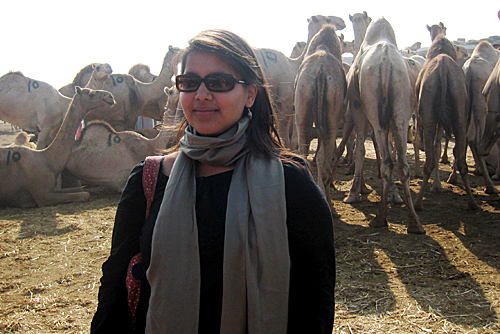
Coasts with the most
California girl Muriel Payan ’08 almost never made it to Harvard, hesitating to move across the country. After graduation, Payan took a one-year fellowship at the American University in Cairo, working in the Office of Institutional Planning, Assessment, Research, and Testing. She then took a similar position at the new King Abdullah University of Science and Technology in Saudi Arabia.
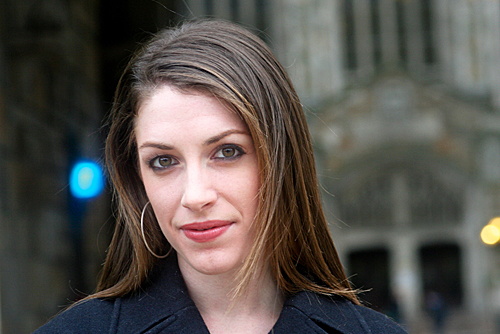
From land to law
Now a third-year law student at the University of Michigan, Rachel Culley ’07 plans to pursue public interest and civil rights work, a choice she said HFAI made possible.
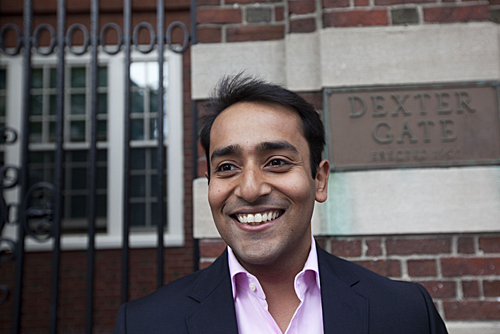
Give and get
Recognizing that his dreams would not have come true had it not been for his benefactors, Richie Banerji ’06 said he gives as much as possible toward financial aid and the Harvard College Fund each year, and lives by a mantra he first saw emblazoned over Dexter Gate: “Depart to serve better thy country and thy kind.”

Lawyer-to-be
Patty Rincon ’08 is studying for the LSAT and applying to law schools, intent on going into criminal or civil rights law. “HFAI has enabled me to do what I want with my Harvard degree, instead of what I had to do to pay off a huge debt,” she said.
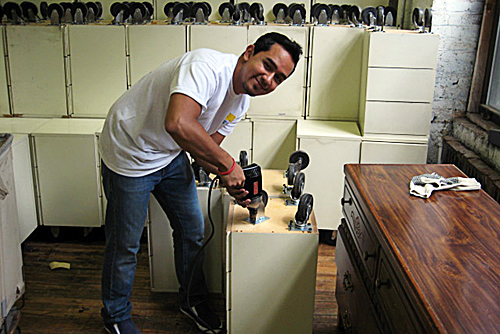
Action-oriented
Today, Juan Sebástian Arias ’09 lives in New York City, working as a public interest fellow at Enterprise Community Partners, a nonprofit organization that provides development capital and expertise to create affordable housing. He hopes one day to do the same in his hometown. “I want to make sure there’s affordable housing for a long time to come,” he said.
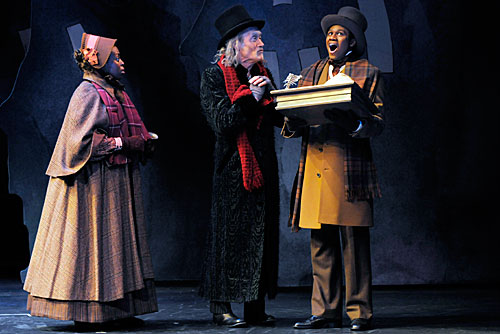
Acting up
“Each night I step onstage in front of an audience, I am proud to share the story I have to tell and know that I’m where I want to be,” said Jon Gentry ’07.

Movin’ on up
Peter Conti-Brown ’05 worked odd jobs to make the $2,000-a-year “parental contribution” toward his tuition. Conti-Brown was one of the first to benefit from HFAI and today has an academic fellowship at Stanford, and will begin clerking for federal Judge Gerard E. Lynch next fall.
